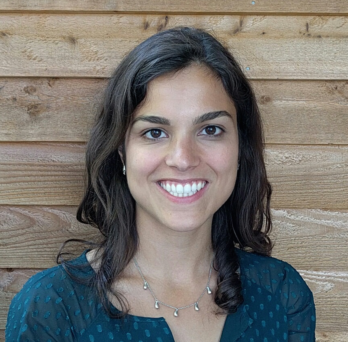About the Center for Dissemination and Implementation Science: Transforming Research into Action
Founded in 2017, the Center for Dissemination and Implementation Science (CDIS) is part of the Department of Medicine at the University of Illinois Chicago. Our mission is to advance health research and improve health outcomes by generating high-impact, cross-disciplinary scientific knowledge in the field of dissemination and implementation science.
Our work spans both the U.S. and global contexts, focusing on the development, testing, and implementation of evidence-based programs in real-world settings. CDIS scholars are committed to addressing health disparities and promoting health equity. We research key areas such as:
- Determinants of implementation (e.g., facilitators, barriers)
- Innovative research methods and solutions for implementation challenges
- Health and implementation outcomes across diverse public health programs
We draw from diverse fields—including behavioral and social sciences, public health, medicine, economics, and public policy—and prioritize translational research. Our core focus areas include:
- Community empowerment
- Mental health
- Adolescent sexual and reproductive health
- HIV/AIDS
- Substance use
- Aging
- Homelessness
- Intimate partner violence
- Urban and global health
CDIS serves as a collaborative and intellectual space for scholars, fostering growth, learning, and the sharing of resources. Our goal is to build an environment that supports impactful and sustainable research, practice, and education in implementation science.
Mission, Vision, and Values Heading link
The Center for Dissemination and Implementation Science is dedicated to advancing research, practice, and education in implementation science. In partnership with communities, we work to reduce health disparities and promote health equity. Our goal is to build a healthier and more equitable world through the transformative power of implementation science.
Our Mission
Our mission is to advance the field of implementation science through rigorous research, innovative practice, and comprehensive education. By working in close partnership with communities, we aim to address and reduce health disparities, fostering equitable access to healthcare and improving health outcomes for underserved populations.
Our Vision
Our vision is to build a healthier and more equitable world by driving forward the science of implementation. We aim to bridge gaps in healthcare access, reduce health disparities, and empower communities through research, collaboration, and education. By translating evidence-based practices into real-world solutions, we strive to create lasting positive change in the health and well-being of diverse populations.
Community Partnership
At the heart of our work is a commitment to community partnership. We believe in engaging with community members at every stage, from identifying needs to implementing solutions. Our approach begins by collaboratively assessing a community’s self-identified needs, ensuring that our efforts align with their priorities. Through participatory processes, we uphold the principle that academics and community partners are equals, valuing community members as experts on the challenges they face.
Our partnerships are built on sustainable, mutually beneficial relationships, creating a network of committed allies working toward shared goals. Together, we aim to foster positive, long-lasting impacts in public health and well-being through reciprocal, respectful collaboration.
Diversity, Equity, and Inclusion
We embrace a broad and inclusive approach to diversity, equity, and inclusion (DE&I) in both our organizational practices and the interventions we design. For us, DE&I means centering the voices and experiences of those who have historically faced marginalization, particularly on the basis of race, ethnicity, socioeconomic status, gender, sexual orientation, age, language, and ability.
Our goal is to develop interventions in partnership with these communities to address structural determinants of health, challenge social inequities, and advocate for social justice. We are committed to fostering a diverse, equitable, and inclusive environment within our Center, ensuring that community members from marginalized backgrounds have a role in leadership and decision-making processes. Through these efforts, we strive to create a more just and equitable health landscape.
Scientific Advancement
We are dedicated to producing rigorous scientific evidence that has a meaningful and sustainable impact on health outcomes. Our commitment to high standards is reflected in every aspect of our research, from conceptualization to implementation. We uphold these standards by building robust research and administrative infrastructures and establishing clear protocols and procedures that ensure consistency and quality.
Our Center’s infrastructure allows us to employ cutting-edge research methods to develop and test innovative solutions to urgent public health challenges. We also prioritize professional development, fostering an environment that supports growth and learning for emerging implementation scientists. Through these efforts, we aim to advance the field of implementation science and contribute to lasting improvements in public health.
Multidisciplinary Collaboration
We place a high value on multidisciplinary collaboration, recognizing that impactful research draws on diverse fields, including psychology, sociology, public health, and medicine. We employ a variety of research methods—quantitative, qualitative, and mixed—applying each intentionally to deepen our understanding and broaden our impact.
What’s Happening at CDIS Heading link
Join Our Community Heading link
-
Professional Development & Works in Progress Seminar
Join our monthly meetings to discuss ongoing projects, share insights, and collaborate with peers. These sessions are held on the third Monday of each month at 11:00 AM via Zoom.
-
Consulting Services
We provide consulting services to support various needs in implementation science and related fields. These services are offered as needed and upon request.
-
Sign up for CDIS Updates
Stay informed about our latest research, events, and news. Join our mailing list for regular updates from the Center for Dissemination and Implementation Science.



